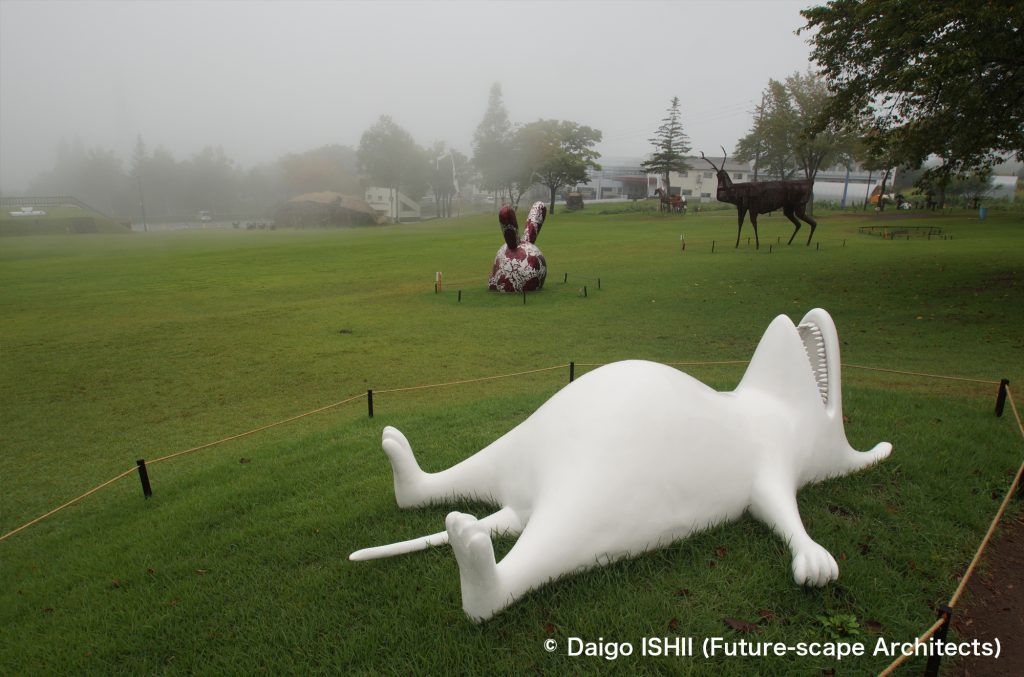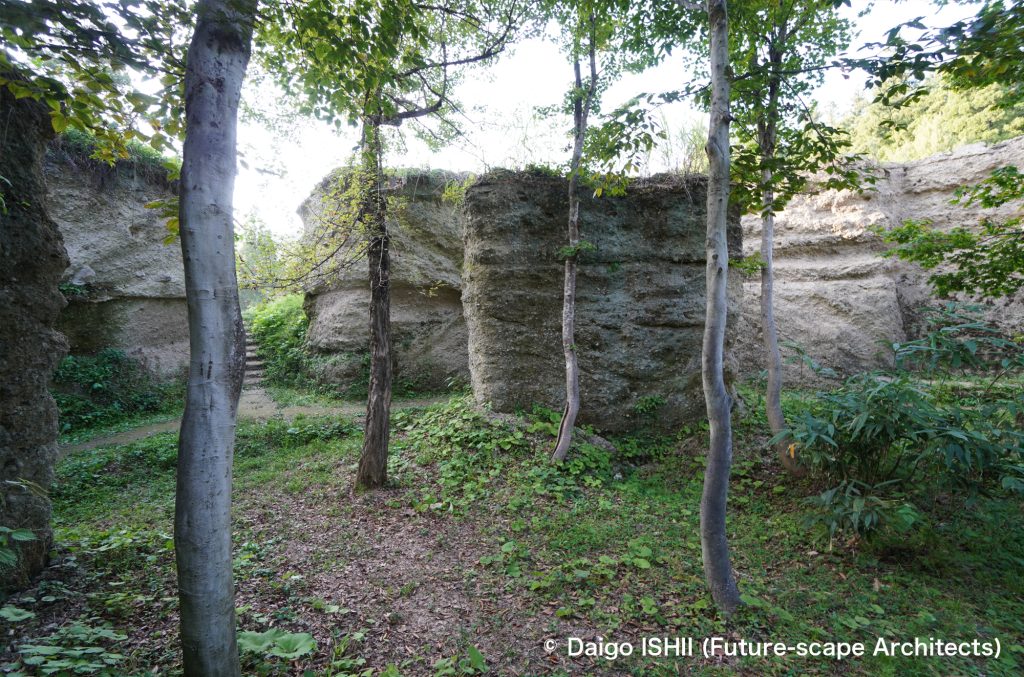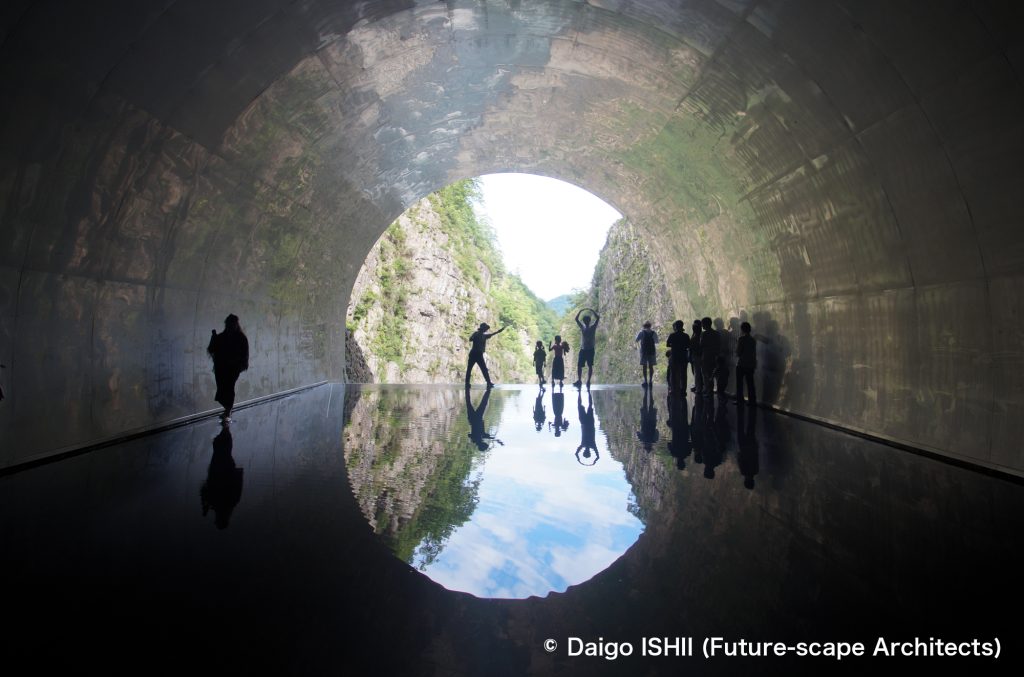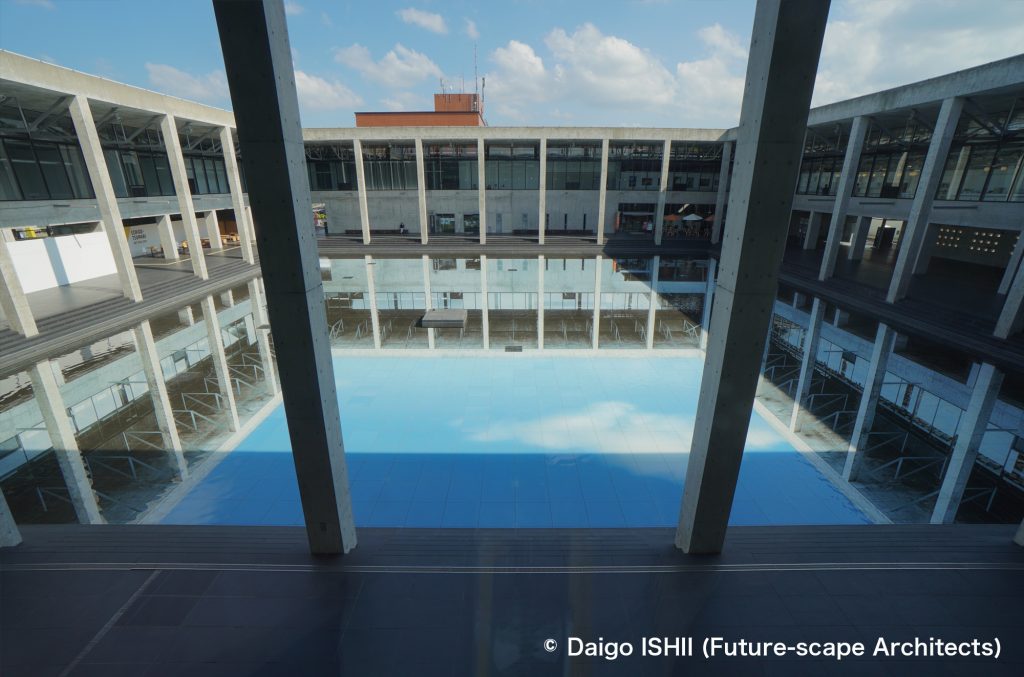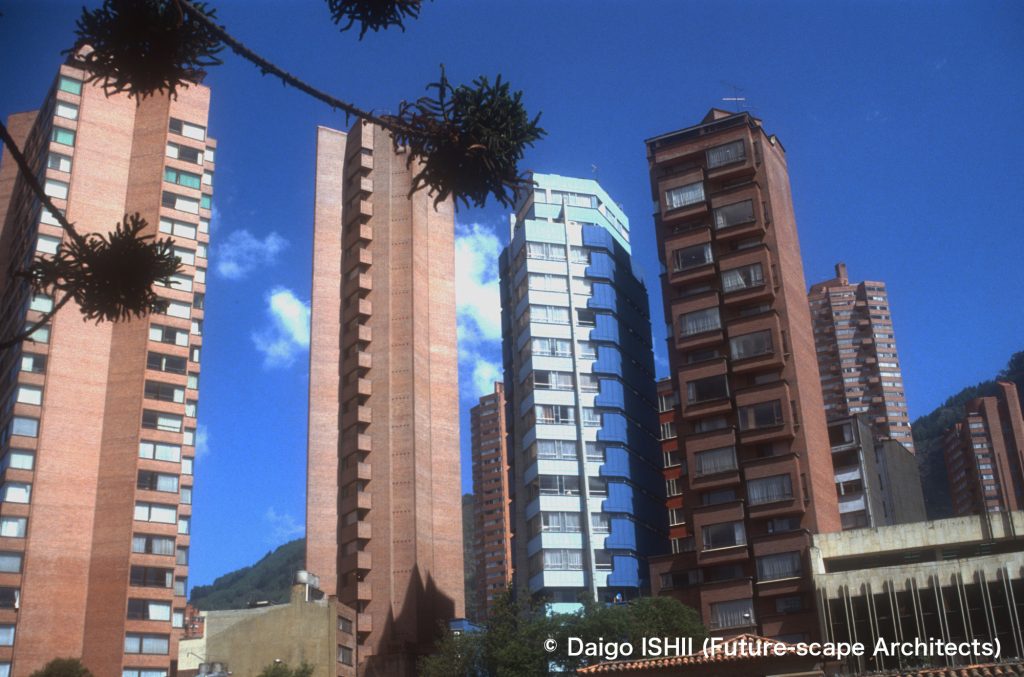高松から特急で1時間の観音寺から、1日5便の船で結ばれた伊吹島は、今の日本の交通体系の上では、交通の便に恵まれた場所とは言えませんが、実は、江戸時代、上方と大分を結ぶ航路の中継点で、上方の流行りものは、対岸の四国本土より先に入って来る場所でした。
その名残として、日本で唯一、江戸時代の京言葉が残っています。
Ibukijima island, which is connected by five boats a day from the mainland Shikoku, is inconvenient in terms of the current transportation system in Japan. But, in the 18th century, it was a relay point on the sea route connecting the capital of those days Kyoto and Southern Japan. The latest items popular in the capital came in the island ahead of mainland Shikoku on the opposite bank.
As a remnant of those days, Ibukijima island is the only place in Japan where the capital (Kyoto) dialect in the old days remains.
伊吹言葉 (Ibukijima Island Dialect) : おまえ (Omae)
標準語 (Standard Japanese) : あなた (Anata)
English : You with respect

See artist ART&EAT TARO and the staff. The kitchen to cook his artwork "Island Soup" was a friendly environment full of "Omae (you with respect)" atmosphere accordinge to his personality.
江戸時代の京言葉を調査するために、金田一春彦先生も伊吹島を訪れました。開かれていた場所が、明治になって、海から陸への交通インフラのシフトにより、社会の変化から遠ざかり、古い言葉がそのまま封印されたということでしょうか。
対岸の観音寺でさえ、伊吹島を訪れたことのない人は多いのですが、昔は今以上につながりが薄く、対岸の観音寺生まれで、伊吹小学校の教頭先生をなさった浜田先生は、大学卒業後、最初の赴任地が伊吹島となった時、そんな知らない場所に行きたくないと泣き続けたそうです。その浜田先生が、伊吹島に赴任して、最初にショックを受けたのが、子供たちに「おまえ」と言われたこと。今でこそ、「おまえ」は目下に使う言葉ですが、本来は、京言葉の「おんまえ」に遡る、身分の上の方に使う言葉で、古い京言葉を使う島の子供たちは、敬意を持って「おまえ」と呼び掛けた訳です。
この島には、不思議なことに韓国語(朝鮮語)の言葉も残っています。戦前、島の大きな網元3軒が、朝鮮半島の東海岸に加工場をつくり、漁を行っていたためで、閉じられた島が、日本を超えた、はるか先の遠い世界とつながった時代の名残です。例えば、徳のある網元の親方を「ヤンバ」と呼びますが、その由来は、朝鮮語の両班(やんばん)。韓国ドラマでお馴染みの言葉で、朝鮮の社会を司どっていた上層階級の、文化的素養のある高貴な人々を指す言葉でした。
写真は、瀬戸内国際芸術祭2013年に参加した際に、島を紹介するブログをつくり、その投稿の一つで、参加アーティストの皆さんに、伊吹言葉を演じてもらったもの。
The famous linguist, Haruhiko Kindaichi, visited this island for his research on the capital (Kyoto) dialect in the old days. In the modern era after the Meiji restoration in 1868, transportation infrastructure shifted from the sea to the land. Therefore, the island moved away from social changes, and the capital (Kyoto) dialect in the old days remained as they were.
Even now many people living at Kan-onji-city on the opposite bank have never visited Ibukijima island. In the past, the connection between Kan-onji-city was weaker than the present time. Mrs. Hamada, who was born in Kan-onji city on the opposite bank and became the vice principal of Ibuki Elementary School later, kept crying when she was assigned to Ibukijima Island for the first time after graduating from university, because she didn't want to go to such an unfamiliar place. The first thing that she shocked when she arrived at Ibukijima elementary school was that children called her "Omae." Nowadays, "Omae (you)" is a word used for inferiors. In the capital dialect in the old days, it was used for higher ranks, and children respectfully called her "Omae" of the old word.
Strangely enough, Korean language also remains on this island. Before the World War II, the three large fishermen’s boss on the island built processing plants for fishing on the east coast on the Korean Peninsula. The words are a remnant of that time. For example, a virtuous fishermen's boss is called ”Yamba”. It derived from the Korean word ”Yangban." It is a word that is familiar in Korean historical dramas and refers to the culturally educated people who belonged to upper class and ruled Korean society.
The photos were taken for one of the posts in the blog I created to introduce the island when I participated in the Art Setouchi Triennial 2013. The participating artists in Ibukijima Island performed the peculiar words in that island.
伊吹言葉 (Ibukijima Island Dialect) : うら (Ura)
標準語 (Standard Japanese) : 自分 (Jibun)
English : I

See artist ART&EAT TARO and the staff who were cooking his artwork "Island Soup".
伊吹言葉 (Ibukijima Island Dialect) : おうどな (Oudona)
標準語 (Standard Japanese) : 横着 (Ouchaku)
English : Lazy

Artist Tsuneo Sekiguchi self-built his artwork "Rainbow Hat", so he is good at using scissors with his feet.
伊吹言葉 (Ibukijima Island Dialect) : じょうほる (Jouhoru)
標準語 (Standard Japanese) : 魚をさばく (Sabaku)
English : Cut the fish

During the preparation period for ArtSetouchi Triennial 2013, Mr. Kawabata, a fisherman, brought the freshly caught fish to the artist lodging house and cut it up.
伊吹言葉 (Ibukijima Island Dialect) : いごく、いがむ (Igoku, Igamu)
標準語 (Standard Japanese) : うごく、ゆがむ (Ugoku, Yugamu)
English : Move, Distorted

The face of artist Kim Tae Bong, who created "Whisper on a Small Island", is probably distorted. It seems that in old dialect, the u sound tended to become the i sound.
伊吹言葉 (Ibukijima Island Dialect) : あきろしい (Akiroshii)
標準語 (Standard Japanese) : ぐだぐだと、どうでもいいことを話す
English : Talk about irrelevant things lazily

In the site of "Ibukijima Island Project Laboratory" by artist group Mikan + Shohei Oka + Kanagawa University Sogabe Laboratory, Tadashi Yamamoto, person in charge (currently hosting Kamiikebukuro's regional development "Kamiike Wooden Cultural Network”), was receiving a yellow card from Koki Shinohara, one of the island's leading volunteer guides, since Yamamoto was "Akiroshii".
伊吹言葉 (Ibukijima Island Dialect) : あじゃわるい (Ajawarui)
標準語 (Standard Japanese) : 気味が悪い (Kimi-ga-Warui)
English : Uncanny

Daigo Ishii, who designed "House of Toilet", played modestly. It is said that this word came from "Aji-ga-warui (bad taste)".
伊吹言葉 (Ibukijima Island Dialect) : ヤンバ (Yamba)
標準語 (Standard Japanese) : 徳のある網元の親方
English : Virtuous fishermen's boss

It comes from the Korean word ”Yangbang”. See a fishermen's boss who was very helpful in many ways during the preparation period for Art Setouchi Triennial 2013.
伊吹言葉 (Ibukijima Island Dialect) : チング(Chin-gu)
標準語 (Standard Japanese) : 友達 (Tomodachi)
English : Friend

It comes from the Korean word ”Chin-gu”. See the owner of Ibuki Shoten Store and the staff of the two stores who were exercising radio calisthenics at the island's number one crossroad during the preparation period for Art Setouchi Triennial 2013.
ご感想はこちらへ / Click here for your impressions
参考文献 / reference
"伊吹島の民俗 : 香川県観音寺市伊吹町 : 特集号"(香川民俗学会,1991)
伊吹島民俗資料館
写真の無断使用、転用はご遠慮下さい。/ Please do not use or upload our photos without permission.
